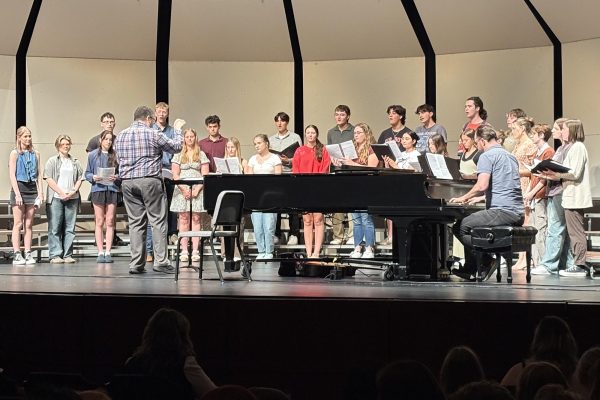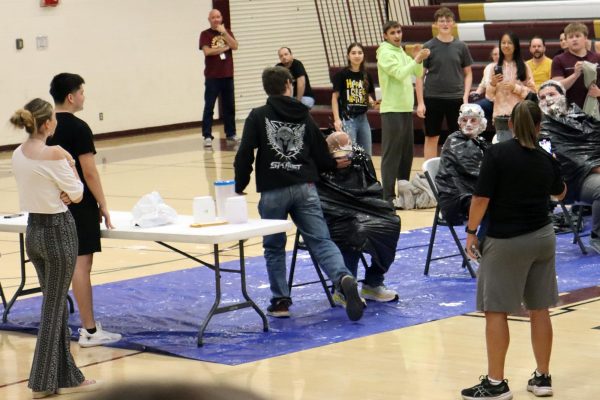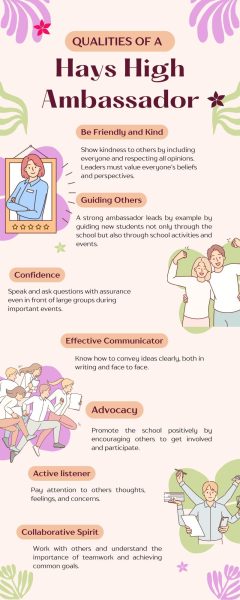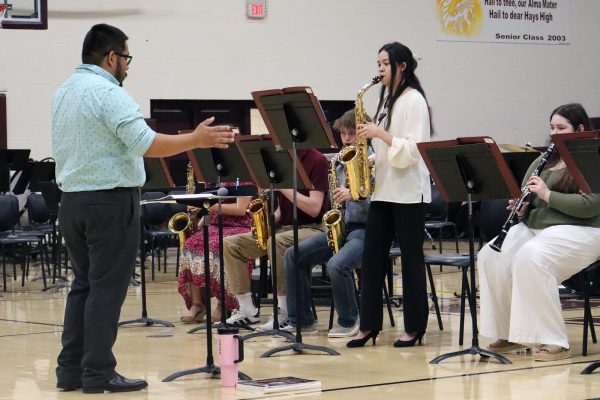For some, language is part of heritage
Everyone has qualities that make them unique. Bits of heritage are often passed down from generation to generation. Sometimes, a part of that heritage is a second language.
Being bilingual can have several advantages.
“You’re able to help more people by being bilingual,” Spanish teacher Lora Haynes said. “Also, bilingual equals bicultural, so you can explain cultural differences in the medicine and law fields.”
Haynes said bilingualism can make someone more attractive in the job market.
“More employees and companies want to hire someone who is bilingual over someone who is not because the bilingual person can reach more people,” Haynes said.
In addition to the employment opportunities, Haynes said being bilingual has other important aspects.
“When you know another language, you tend to understand your language better,” Haynes said. “Your mind is more open to people from other countries and more accepting of people from other cultures.”
Haynes comes from a two-language home.
“I was raised bilingual,” Haynes said. “Both parents spoke Spanish and English, so both languages were spoken at home.”
Haynes said her upbringing encouraged her desire to teach Spanish.
“I think it’s important for every person to know two languages,” Haynes said. “It gives you a better knowledge of your heritage and the culture you come from, as the two are intertwined. You can’t just know the language—you have to know the culture, too.”
Senior Eirik Legernes first language is Norwegian.
“We started learning English in second or third grade,” Legernes said. “It wasn’t too bad. Having to talk it all the time was a bit different, but I got used to it quickly. We learned British English, but there is not much of a difference between what is spoken here.”
Legernes said that the hardest thing about English was learning all of the words.
“Sometimes I forget easy words,” Legernes said. “But I think knowing two languages is a good thing, especially since there is no other country speaking Norwegian at the moment.”
Senior Sang Lee’s native tongue is Korean.
“In school we learned grammar and words,” Lee said. “So most [Koreans] are good in writing or grammar.”
Lee said that she was a poor studier, which contributed to her difficulties with the language.
“My friend memorizes about 30 to 100 words a day, but I didn’t really study English at all,” Lee said. “I know some by memorizing them, but I don’t use it a lot, and when I try to use it they don’t come out nice.”
Lee also said that she would occasionally mix up words.
“In speaking, I get confused by not knowing which word I need to use to mean what I want to speak. In writing, it’s harder for me,” Lee said.
Overall, Lee said knowing English was useful, even if she got confused.
Sophomore Mariela Estrada is also bilingual.
“I learned to speak English mainly through my siblings and from school,” Estrada said. “The hardest part of learning to speak English has been trying to be able to communicate with my mom.”
Estrada said she would rather speak English than Spanish.
“With English, I can get a better education than if I only knew Spanish,” Estrada said.
Estrada said that she sometimes slips into another language.
“I’ve noticed that I usually speak Spanish when I’m mad or worked up,” Estrada said.
Estrada also said she thought knowing two languages was beneficial.
“I think that it is better to know two languages,” Estrada said. “With knowing more languages, you can communicate better with more people.”








